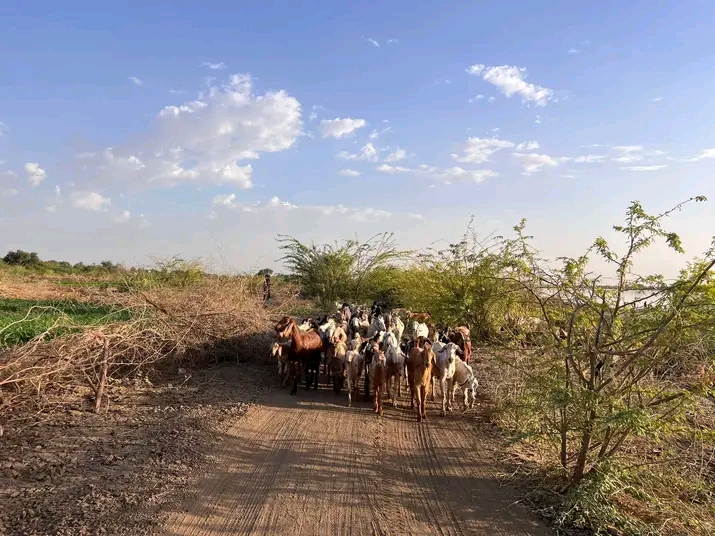Livestock is one of the main pillars of Sudan’s economy, contributing significantly to the national GDP and serving as a primary source of foreign currency through exports.
However, with the outbreak of war between the Sudanese Armed Forces and the Rapid Support Forces in April 2023, this vital sector has suffered massive damage. The conflict has severely threatened the livelihoods of millions of herders and breeders, with devastating consequences for the national economy, both now and for years to come.
1. Direct Losses in Livestock:
Widespread Deaths: Millions of cattle, sheep, camels, and goats have perished due to clashes, displacement, and deteriorating environmental and grazing conditions.
Looting and Theft: Armed groups have repeatedly looted livestock, leaving many herders with nothing.
Collapse of Veterinary Services: Veterinary guidance centers have been destroyed, and vaccination campaigns have ceased, leading to the outbreak of deadly diseases such as hemorrhagic septicemia and pox.
2. Current Economic Impacts:
Decline in Exports: Sudan used to export large quantities of live and slaughtered meat to Gulf countries and North Africa. The war has disrupted supply chains, causing exports to almost completely stop.
Rising Meat Prices: The sharp decrease in supply has caused meat prices to soar in local markets, placing a heavy burden on citizens—especially in conflict and displacement zones.
Loss of Livelihoods: Millions of families who relied on livestock as their main source of income now face poverty and hunger.
3. Future Consequences:
Collapse of Veterinary Infrastructure: The destruction of research centers, vaccination stations, and grazing networks will delay recovery for years unless there is direct international intervention.
Genetic and Production Decline: The loss of high-quality breeds and the absence of scientific oversight will reduce livestock production both in quantity and quality.
Loss of Investment Opportunities: Prior to the war, Sudan was a destination for foreign investment in livestock. The current instability and insecurity have undermined this confidence and will likely hinder its return anytime soon.
Increased Reliance on Imports: With declining domestic production, Sudan may be forced to import meat and its byproducts, further straining the balance of payments.
The war in Sudan poses an existential threat to the livestock sector—a sector that has long been a cornerstone of the nation’s economy.
Continuing conflict will only deepen the crisis, affecting not just livelihoods but the broader prospects for food and economic security. Therefore, ending the war, rehabilitating the sector, and attracting humanitarian and technical support are urgent steps to save what remains and ensure sustainable economic recovery.
